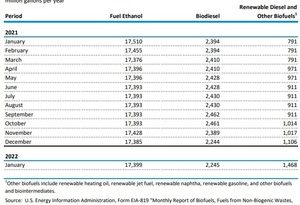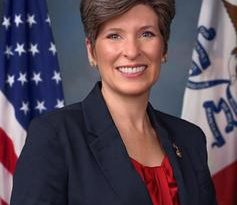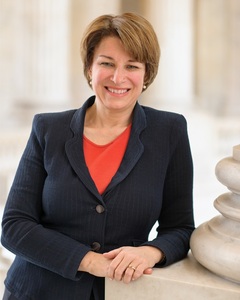Garamendi introduces bill requiring EPA to process eRIN pathways
Energy Disrupter
ADVERTISEMENT
Rep. John Garamendi, D-Calif., on Nov. 5 introduced the Biomass and Biogas for Electric Vehicles Act, which aims to require the U.S. EPA to process long-delayed Renewable Fuel Standard pathway applications to generate eRINs, allowing biomass facilities generating electricity to participate in the federal RFS program.
“I have long supported a utility-scale subsidy for biomass electricity to incentivize proper forest management and much-needed hazardous fuels reduction in fire-prone states like California. As California and neighboring states face increasingly severe and year-round fire seasons, this will help to reduce the artificially high levels of biomass on our forestlands due to man-made climate change, drought, invasive species like bark beetle outbreaks, and years of mismanagement,” Garamendi said. “Renewable electricity from biomass and biogas helps reduce our nation’s greenhouse gas emission and transition to a clean energy economy. While these measures alone will not solve the climate crisis or prevent all catastrophic wildfires, they are undoubtedly part of the solution. That’s why I’m introducing the ‘Biomass and Biogas for Electric Vehicles Act.’”
The Energy Independence and Security Act of 2007 established the RFS in its current form and made electricity from renewable biomass, including biogas and waste-to-energy from eligible feedstocks, eligible to meet RFS blending requirements. The EPA, however, has failed to approve a single bioenergy facility under the program. According to information released by Garamendi’s office, some RFS pathway petitions for biomass electricity have been pending for more than seven years.
The EPA currently requires facilities to prove with perfect traceability that electricity generated is used as a transportation fuel to participate in the RFS program. Most biomass facilities, however, sell electricity to the grid and cannot prove definitively that each electron generated is used exclusively by electric vehicles.
Garamendi’s bill directs the EPA to extrapolate the percentage of total U.S. electricity generation used for charging electric vehicles. The agency would then set a quarterly quota for each biomass facility registered under the program, limited by each facility’s maximum design capacity. The bill would also grandfather any renewable biomass, biogas or waste-to-energy facilities that can prove definitively the electricity generated is used as transportation fuel, such as those with on-site electric vehicle charging stations. In addition, the bill would require EPA to review all pending applications for renewable electricity under the RFS program in a timely manner and make a final decision. The agency would be required to post the status of each pending application for renewable electricity online, including the date submitted, reviewed and decided.
A statement released by Garamendi’s office indicates the EPA previously identified inadequate staffing and agency resources as major impediments to approving eRIN applications. To overcome those problems, the bill allows the EPA to collect a reasonable fee from industry to cover the costs of reviewing any RFS applications for renewable electricity. The bill would incentivize the EPA to approve pending applications within one year by allowing applicants to request the fee be refunded if the ageny fails to take action on a pathway petition after one year. Even in the event a fee is refunded, however, the agency would be required to process the applicant’s eRIN pathway petition. EPA would be allowed to waive application fees for municipally owned renewable energy facilities.
The bill would also make biomass from federal forestlands eligible under the RFS.
The RFS Power Coalition, Biomass Power Association, American Biogas Council, Energy Recovery Council and National Association of State Foresters have endorsed the legislation.
“We greatly appreciate Rep. Garamendi for his focused attention on getting the EPA to implement the electricity program in the RFS,” said Carrie Annand, executive director of BPA. “The members of the RFS Power Coalition are power producers who use farm, forest and municipal solid waste – all qualifying feedstocks under the RFS – to supply power to electric vehicles, and they deserve credit for this contribution. Participation in the RFS represents stability for many of our members, as well as a reliable low-carbon fuel source for our nation’s growing electric vehicle fleet.”
“Thanks to Rep. Garamendi for the timely release of this bill, which requires the EPA to process applications from biogas power producers that have been pending since 2015,” said Patrick Serfass, executive director of the ABC. “If we want to decarbonize transportation while creating a host of other economic and environmental benefits, biogas has to be a part of the solution. We look forward to working with Rep. Garamendi, and we urge Congress to pass this bill as soon as possible.”
















